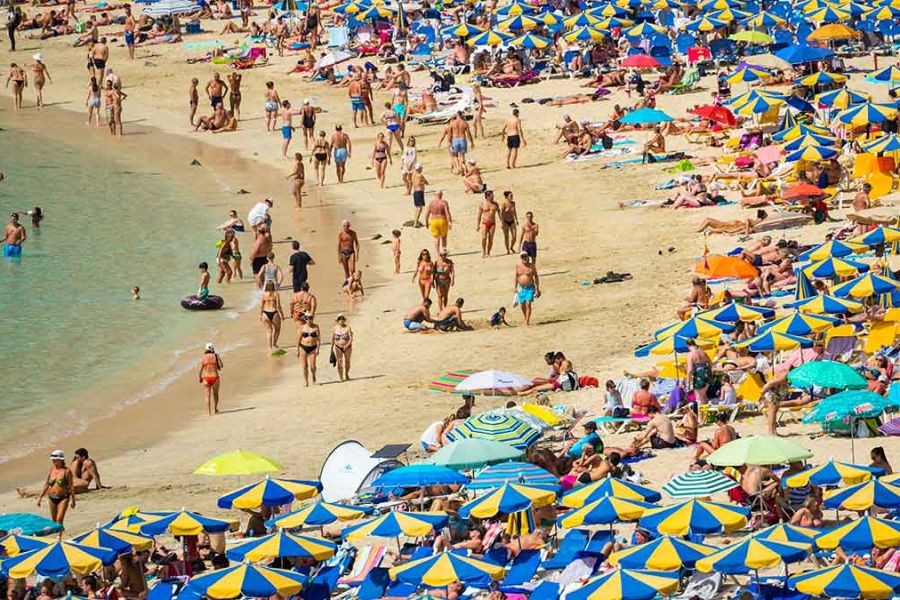New Zealand, renowned for its stunning landscapes and vibrant culture, is grappling with a growing challenge: over-tourism. What was once a boon for the economy is now threatening to spoil the very attractions that draw visitors. This article delves into the complexities of over-tourism in New Zealand, offering financial advisors essential insights into how this trend impacts both the local economy and the quality of life for residents.
Understanding Over-Tourism: The New Zealand Context
Over-tourism refers to the situation where the number of tourists exceeds the capacity of a destination, leading to negative impacts on the environment, local communities, and infrastructure. In New Zealand, tourism has been a critical sector, contributing over NZD 16 billion to the GDP as of 2019, according to Stats NZ. However, the surge in visitor numbers has raised concerns about sustainability and the preservation of local heritage.
The Economic Impact: A Double-Edged Sword
Tourism is a significant economic driver in New Zealand, providing employment and supporting local businesses. Yet, the strain on infrastructure and natural resources is palpable. The Ministry of Business, Innovation, and Employment (MBIE) reports that popular destinations like Queenstown and Rotorua are experiencing overburdened facilities, leading to increased maintenance costs and environmental degradation.
Real-World Case Studies: Lessons from Around the World
Case Study: Venice – Managing Tourist Influx
Venice, Italy, faced a similar crisis with millions of visitors annually affecting the city's infrastructure. To address this, Venice implemented a tourism management plan, including visitor caps and entrance fees. The result was a more sustainable flow of tourists, reduced congestion, and better preservation of cultural sites. New Zealand can draw parallels from this approach, particularly for crowded spots like Milford Sound.
Case Study: Iceland – Balancing Growth and Sustainability
Iceland has emerged as a case study for balancing tourism growth with ecological preservation. By investing in infrastructure and promoting off-peak travel, Iceland managed to distribute tourist numbers more evenly throughout the year. New Zealand's tourism sector could benefit from similar strategies, especially in regions like the Southern Alps, where environmental concerns are mounting.
Data-Driven Insights: The Numbers Tell the Story
- Tourist Arrivals: According to Stats NZ, international tourist arrivals reached 3.9 million in 2019, straining resources in popular destinations.
- Economic Contribution: Tourism contributed 5.8% to the GDP, but the cost of maintaining infrastructure rose by 15% in high-traffic areas.
- Environmental Impact: The Department of Conservation noted a 12% increase in trail erosion, highlighting the need for sustainable tourism practices.
- Local Sentiment: A survey by Tourism New Zealand found that 65% of residents feel that tourism negatively impacts their quality of life.
Debunking Myths: Common Misconceptions About Over-Tourism
- Myth: More tourists always mean more profit.
- Reality: While initial revenue may increase, the long-term costs of environmental damage and infrastructure strain often outweigh short-term gains.
- Myth: Only popular tourist spots are affected.
- Reality: Over-tourism can impact surrounding areas and lesser-known destinations as tourists seek alternatives to crowded spots.
- Myth: Restricting tourism will harm the economy.
- Reality: Sustainable tourism strategies can enhance economic stability by promoting year-round travel and preserving resources.
Contrasting Views: The Debate Over Tourism Management
Advocate Perspective: Economic Growth
Proponents argue that tourism is essential for economic growth, providing jobs and supporting local businesses. They suggest that with proper management, the benefits can outweigh the drawbacks.
Critic Perspective: Environmental and Social Costs
Critics highlight the environmental degradation and social disruption caused by over-tourism. They advocate for stricter regulations and investment in infrastructure to mitigate these impacts.
Finding Middle Ground: Sustainable Tourism
Sustainable tourism offers a compromise, focusing on eco-friendly practices and community involvement to ensure that tourism benefits both the economy and the environment.
Pros vs. Cons of Over-Tourism
Pros:
- Economic Boost: Increases in revenue and job creation.
- Global Exposure: Enhances New Zealand's international profile.
- Infrastructure Development: Investments in facilities and services.
Cons:
- Environmental Damage: Degradation of natural sites and biodiversity loss.
- Infrastructure Strain: Overburdened facilities and increased maintenance costs.
- Quality of Life: Increased congestion and disruption for locals.
Future Trends and Predictions
Looking ahead, New Zealand's tourism industry is poised for transformation. By 2028, it is predicted that eco-tourism will grow by 35%, driven by increasing consumer demand for sustainable travel options. The government is likely to introduce more policies aimed at balancing tourism growth with environmental preservation, ensuring that New Zealand remains a top destination while protecting its natural heritage.
Conclusion: The Path Forward
New Zealand's over-tourism crisis requires a strategic approach that balances economic benefits with sustainability. By learning from global examples and implementing data-driven strategies, New Zealand can preserve its natural beauty and cultural heritage while supporting a thriving tourism industry. Financial advisors can play a crucial role in guiding investments towards sustainable tourism initiatives, ensuring long-term prosperity for the local economy.
People Also Ask
- How does over-tourism affect New Zealand's economy? Over-tourism strains infrastructure, leading to increased maintenance costs and environmental degradation, which can offset economic gains.
- What strategies can New Zealand implement to manage over-tourism? Strategies include promoting off-peak travel, investing in infrastructure, and implementing visitor caps in popular areas.
- What are the biggest misconceptions about over-tourism? One common myth is that more tourists always mean more profit, but long-term costs often outweigh short-term gains.
Related Search Queries
- New Zealand over-tourism solutions
- Sustainable tourism in New Zealand
- Economic impact of tourism in NZ
- Environmental effects of over-tourism
- Tourism management strategies NZ
- New Zealand tourism statistics 2023
- Impact of tourism on NZ locals
- Over-tourism case studies
- sustainable travel NZ 2023
- Future of tourism in New Zealand


![British Medallion Trench Lighter [1910s] 🔥](https://s3.ap-southeast-2.wasabisys.com/cdn.vidude.com/upload/photos/2026/01/519b1b220c0beed4bd2e114e71ea9027ebc4c4ebaCcvsVn2LNaYTrQvqWih.video_thumb_7422_59.jpeg)





























ShanelKean
10 months ago